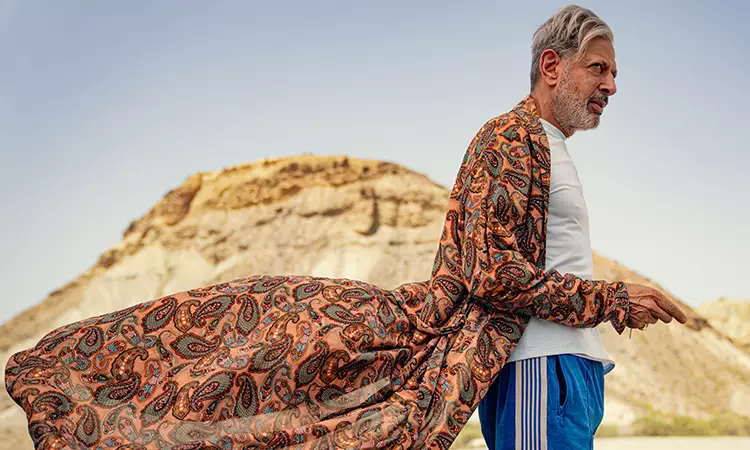In an era where classic narratives are reframed for contemporary audiences, Netflix takes audacious steps with its latest series, “Kaos.” This eight-episode retelling of Greek mythology delivers more than just a visual feast; it invites viewers into a labyrinth where ancient gods find themselves at odds with a disenchanted humanity. At the center of this vibrant spectacle is Zeus, portrayed with spectacular flair by Jeff Goldblum. Unlike stately representations of the king of the gods in traditional sources, Goldblum’s adaptation is an eccentric blend of paranoia and narcissism, engaging with the audience while remaining steeped in divine entitlement.
However, the show challenges the longstanding reverence humans are expected to have for the divine, framing the mortals’ growing resentment as a critical point of tension. Rather than depicting a whimsical fidelity to the pantheon, “Kaos” beautifully juxtaposes divine vanity with human struggle, casting doubt on the notion of worship and reverence.
Striking a Balance: Characters Unbound
The character roster in “Kaos” is a veritable who’s who of Greek mythology that gets reshaped into relatable figures for modern audiences. While Zeus represents the archetypal ruler, the dynamics with his wife and sister Hera, played by Janet McTeer, add layers to the narrative. McTeer brilliantly delivers biting wit that serves as a necessary counterbalance to Goldblum’s offbeat charisma. This portrays not just a relationship caught in the crucible of power, but a partnership punctuated by sharp retorts that reveal the cracks in their divine marriage.
Moreover, the character of Riddy, played by Aurora Perrineau as Eurydice, transcends the traditional bounds of her mythological predecessor. The series offers a richly developed character who embodies agency, turning the spotlight on her own desires amidst the chaos of celestial conflicts. Daringly, “Kaos” reinvigorates gender dynamics, allowing traditionally sidelined voices to take an assertive stand.
Stephen Dillane’s portrayal of Prometheus adds yet another layer to the narrative structure by intertwining the various mythological tales. Serving as both a witness and a commentator on the unfolding drama, Dillane’s character elevates the storytelling, transforming disparate threads into a cohesive narrative climax. The continuous crisscrossing of myths speaks to the essential interconnectedness present in the ancient stories, suggesting that while time has morphed their significance, their essence remains universal.
Visual Aesthetics: Vibrance Meets Reflection
If the character arcs ground “Kaos,” the show’s visuals elevate it. The production team expertly crafts a world bursting with contemporary aesthetics that resonate with Gen-Z viewers. Bright colors, whimsical sets, and dynamic cinematography all encapsulate the playful essence of the series, allowing viewers to engage with the narrative without feeling overwhelmed by its historical weight. By utilizing a signature palette, the creators cultivate an atmosphere that fosters accessibility—an invitation to explore themes of divine mischief and human agency without the cloistered aloofness one might expect from a mythological adaptation.
The brilliance of “Kaos” lies in its ability to poke fun at the absurdity of mythology while embracing its inherent chaos. The series echoes Baz Luhrmann’s modern take on classic narratives, akin to “Romeo + Juliet,” but with an irreverent twist. It embraces the surreal and flamboyant elements of the ancient tales without succumbing to the parodic, achieving a clever blend of humor and depth.
In “Kaos,” Netflix not only reimagines ancient myths but also engages in a broader dialogue about identity, sexuality, and modernity. The narrative’s fluidity mirrors the sexual openness celebrated in ancient Greek culture while introducing inclusivity in its casting and layered characterizations. As the series delicately dances between humor, drama, and reflection, it emerges not simply as entertainment but as a vibrant celebration of storytelling diversity that honors both the chaos and beauty of human experience.
As “Kaos” invites its audience to question the eternal struggle between mortals and gods, it also prompts a more in-depth investigation of our contemporary dilemmas. Ultimately, this chaos is not merely a backdrop but a vital narrative engine driving us towards an understanding of ourselves, both in ancient times and today.

